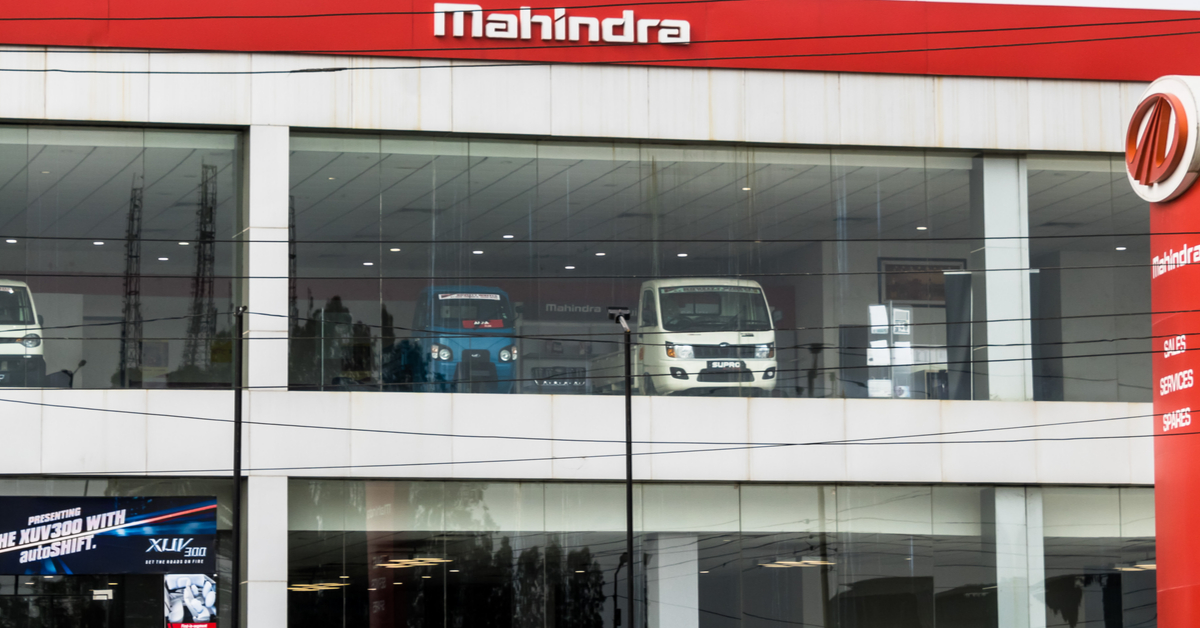There are people who do it (battery manufacturing) very well. We can partner with them; we could be a co-investor in some form: M&M CEO Anish Shah
Last week, the company announced raising INR 1,925 Cr for its new EV unit from British International Investment at a valuation of INR 70,070 Cr
M&M also signed an agreement with Volkswagen in May to use components such as electric motors, battery system parts and battery cells sourced from the German company
At a time when India is exploring ways to become self-reliant in production of lithium-ion batteries for electric vehicles (EVs), Mahindra & Mahindra CEO Anish Shah said that the automotive manufacturer does not intend to get into manufacturing batteries, but could consider investing in a battery cell manufacturing company.
The statement comes days after Mahindra announced raising INR 1,925 Cr ($250 Mn) for its newly incorporated EV unit from British International Investment (BII) at a valuation of INR 70,070 Cr ($9.1 Bn). Its new EV unit would focus on four-wheeler passenger EVs.
Earlier, the company also announced a potential collaboration with Volkswagen wherein it planned to use components such as electric motors, battery system parts and battery cells sourced from the German auto and auto parts maker.
While the Volkswagen deal would meet Mahindra’s “short to medium term” battery needs, the company is also open to exploring “investment with a global leader” in the battery-cell space in case it is needed to secure future supplies, said Shah, as per Reuters.
“Our intent is not to get into (manufacturing) batteries,” he said. “There are people who do it very well. We can partner with them; we could be a co-investor in some form. We don’t need to own it and run it.”
As per Shah, a majority of the EV components barring batteries and motors are not very different from those of combustion-engine cars, and Mahindra produces a majority of the parts in-house.
“If we can get an agreement like we have with Volkswagen to secure (battery) supplies, that’s what we will do. If there’s some investment we need to make to secure those supplies, we will do that,” he said.
Last year, in an attempt to incentivise the EV industry, the Indian government approved a Production Linked Incentives (PLI) scheme for manufacturing advanced chemistry cell (ACC) batteries at an estimated outlay of INR 18,100 Cr. last year.
After multiple fire incidents related to EVs, which also included a four-wheeler fire involving Tata Nexon, there has been an increased emphasis on producing not only EV batteries but also cells in the country and testing them under Indian conditions.
NITI Aayog member and scientist V K Saraswat also said in May that imported battery cells for EVs “may not be” suitable for India, and emphasised the need for local manufacturing of cells.
Several experts had earlier told Inc42 that manufacturing EV cells and batteries in India would also considerably help the country in being more self-reliant during times of any global crisis and help reduce vehicle costs to a great extent.
However, India is largely dependent on imported batteries for now. The country imported 450.3 Mn units of Li-ion batteries in the April-November period of the financial year 2019-20, valued at $929.26 Mn (over INR 7,200 Cr).
After much controversy about the safety of batteries in Ola Electric scooters, its CEO Bhavish Aggarwal on Monday (July 7), in a tweet, unveiled its “first indigenously made Li-ion cell”.
Meanwhile, the total capital infusion in Mahindra’s new EV unit is currently envisaged to be approximately INR 8,000 Cr ($1 Bn) between FY24 and FY27 for the planned product portfolio.



![Read more about the article [Funding alert] Pine Labs raises $285M at $3B valuation](https://blog.digitalsevaa.com/wp-content/uploads/2021/05/Image5d9v-1603192587814-300x150.jpg)




![Read more about the article [Funding alert] Zetwerk enters unicorn club after raising $150M, looks to expand in international market](https://blog.digitalsevaa.com/wp-content/uploads/2021/08/Imagegxfc-1629712185047-300x150.jpg)

